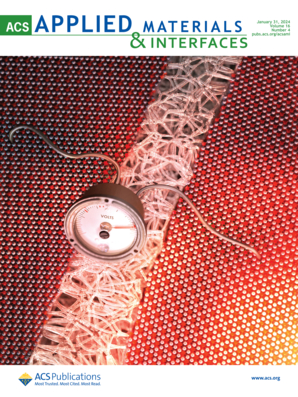Particulate matters (PM2.5, PM10) and the risk of depression among middle-aged and older population: analysis of the Korean Longitudinal Study of Aging (KLoSA), 2016–2020 in South Korea
IF 8.3
2区 材料科学
Q1 MATERIALS SCIENCE, MULTIDISCIPLINARY
引用次数: 0
Abstract
There is a growing concern that particulate matter (PM) such as PM2.5 and PM10 has contributed to exacerbating psychological disorders, particularly depression. However, little is known about the roles of these air pollutants on depression in elderly. Therefore, this study aimed to examine the association between PM2.5 and PM10, and depression in the elderly population in South Korea. We used panel survey data, the Korean Longitudinal Study of Aging (KLoSA), administered by the Labor Institute during the study period of 2016, 2018, and 2020 covering 217 districts in South Korea (n = 7674). Annual district-specific PM2.5 and PM10 concentrations were calculated for the study period from the monthly prediction concentrations produced by a machine-learning-based ensemble model (cross-validated R2: 0.87), then linked to the people matching with year and their residential district. We constructed a generalized estimating equation (GEE) model with a logit link to identify the associations between each of the long-term PM2.5 and PM10 exposures and depression (CES-D 10) after adjusting for individual and regional factors as confounders. In single-pollutant models, we found that long-term 10 $$\mathrm{\mu g}/{m}^{3}$$ increments in PM2.5 (OR 1.36, 95% CI 1.20–1.56) and PM10 (OR 1.19, 95% CI 1.10–1.29) were associated with an increased risk of depression in the elderly. Associations were consistent after adjusting for other air pollutants (NO2 and O3) in two-pollutant models. In addition, the impacts substantially differed by regions grouped by the tertile of the population density, for which the risks of particulate matters on depression were substantial in the middle- or high-population-density areas in contrast to the low-population-density areas. Long-term exposure to PM2.5 and PM10 was associated with a higher risk of developing depression in elderly people. The impact was modified by the population density level of the region where they reside.颗粒物(PM2.5、PM10)与中老年人群的抑郁风险:2016-2020年韩国老龄化纵向研究(KLoSA)分析
人们越来越担心,PM2.5 和 PM10 等颗粒物(PM)会加剧心理疾病,尤其是抑郁症。然而,人们对这些空气污染物对老年人抑郁症的影响知之甚少。因此,本研究旨在探讨 PM2.5 和 PM10 与韩国老年人抑郁之间的关系。我们使用了面板调查数据--韩国老龄化纵向研究(KLoSA),该数据由韩国劳动研究院在 2016 年、2018 年和 2020 年的研究期间进行管理,覆盖韩国 217 个地区(n = 7674)。根据基于机器学习的集合模型(交叉验证 R2:0.87)生成的月度预测浓度,计算出研究期间特定地区的 PM2.5 和 PM10 年度浓度,然后将其与年份及其居住区的匹配人群联系起来。我们构建了一个具有对数链接的广义估计方程(GEE)模型,在调整了作为混杂因素的个人和地区因素后,确定了每种 PM2.5 和 PM10 长期暴露与抑郁(CES-D 10)之间的关联。在单一污染物模型中,我们发现PM2.5(OR 1.36,95% CI 1.20-1.56)和PM10(OR 1.19,95% CI 1.10-1.29)的长期10 $\mathrm{\mu g}/{m}^{3}$增量与老年人抑郁风险的增加有关。在双污染物模型中对其他空气污染物(二氧化氮和臭氧)进行调整后,两者的相关性保持一致。此外,按人口密度三等分组划分的不同地区所产生的影响也大不相同,其中,中等或高人口密度地区与低人口密度地区相比,颗粒物对抑郁症的影响风险更大。长期暴露于 PM2.5 和 PM10 与老年人患抑郁症的风险较高有关。这种影响因居住地区的人口密度水平而异。
本文章由计算机程序翻译,如有差异,请以英文原文为准。
求助全文
约1分钟内获得全文
求助全文
来源期刊

ACS Applied Materials & Interfaces
工程技术-材料科学:综合
CiteScore
16.00
自引率
6.30%
发文量
4978
审稿时长
1.8 months
期刊介绍:
ACS Applied Materials & Interfaces is a leading interdisciplinary journal that brings together chemists, engineers, physicists, and biologists to explore the development and utilization of newly-discovered materials and interfacial processes for specific applications. Our journal has experienced remarkable growth since its establishment in 2009, both in terms of the number of articles published and the impact of the research showcased. We are proud to foster a truly global community, with the majority of published articles originating from outside the United States, reflecting the rapid growth of applied research worldwide.
 求助内容:
求助内容: 应助结果提醒方式:
应助结果提醒方式:


